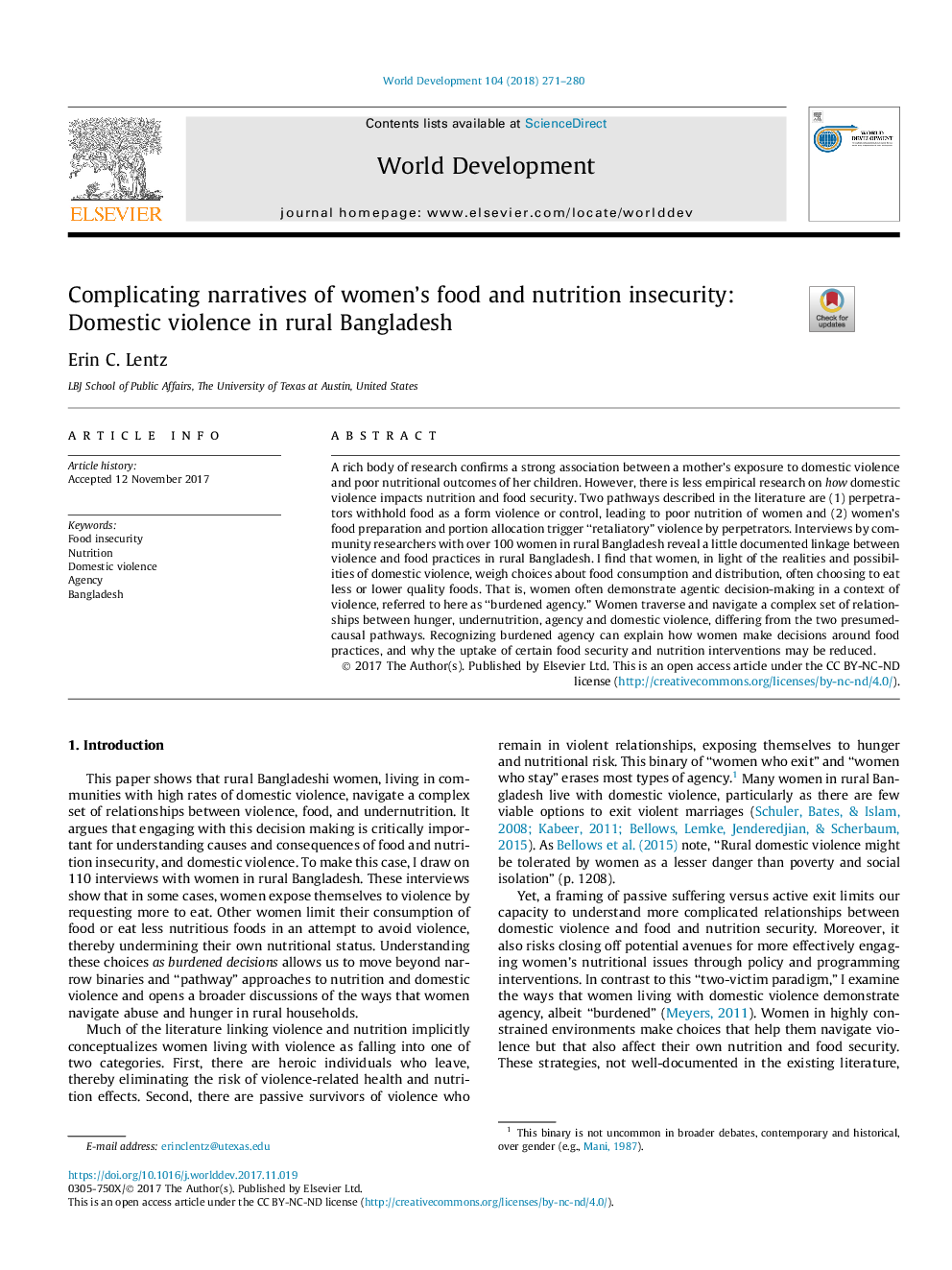| Article ID | Journal | Published Year | Pages | File Type |
|---|---|---|---|---|
| 7392159 | World Development | 2018 | 10 Pages |
Abstract
A rich body of research confirms a strong association between a mother's exposure to domestic violence and poor nutritional outcomes of her children. However, there is less empirical research on how domestic violence impacts nutrition and food security. Two pathways described in the literature are (1) perpetrators withhold food as a form violence or control, leading to poor nutrition of women and (2) women's food preparation and portion allocation trigger “retaliatory” violence by perpetrators. Interviews by community researchers with over 100 women in rural Bangladesh reveal a little documented linkage between violence and food practices in rural Bangladesh. I find that women, in light of the realities and possibilities of domestic violence, weigh choices about food consumption and distribution, often choosing to eat less or lower quality foods. That is, women often demonstrate agentic decision-making in a context of violence, referred to here as “burdened agency.” Women traverse and navigate a complex set of relationships between hunger, undernutrition, agency and domestic violence, differing from the two presumed-causal pathways. Recognizing burdened agency can explain how women make decisions around food practices, and why the uptake of certain food security and nutrition interventions may be reduced.
Related Topics
Social Sciences and Humanities
Economics, Econometrics and Finance
Economics and Econometrics
Authors
Erin C. Lentz,
